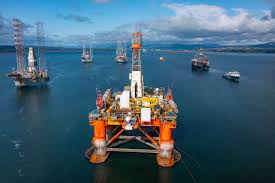Nearly five years ago, BP started a bold endeavor to change from an oil firm to a low-carbon power company.
To match competitors, boost its share price, and soothe investor fears about future profitability, the British firm is currently attempting to revert to its historical position as a major oil and gas player with a growth story.
Norway’s state-owned Equinor and rival Shell are likewise reducing their energy transition goals that were laid out earlier this decade.
Their shift of focus is a result of two significant events: the energy shock caused by Russia’s invasion of Ukraine and the decline in the viability of many renewable energy projects, especially offshore wind, as a result of rising costs, supply chain challenges, and technical difficulties.
Laptops 1000To increase performance and profits, BP CEO Murray Auchincloss intends to invest billions in new oil and gas projects, notably those in the Middle East and the U.S. Gulf Coast.
By stopping 18 early-stage possible hydrogen projects and announcing intentions to sell its wind and solar operations, BP has also slowed down its low-carbon efforts.
It recently reduced its London hydrogen team by more than half, to 40 employees.
Wael Sawan, the CEO of Shell, has promised to use brutal tactics to boost the company’s performance and profits and bridge the widening valuation gap with its bigger American competitors, Exxon Mobil and Chevron.
The corporation has lowered a 2030 carbon reduction target, sold refineries, pulled out of the European and Chinese power sectors, and scaled back low-carbon initiatives, such as floating offshore wind and hydrogen projects.
Shell is looking for buyers for Select Carbon, an Australian business it purchased in 2020 that specializes in creating agricultural projects meant to offset carbon emissions.

















